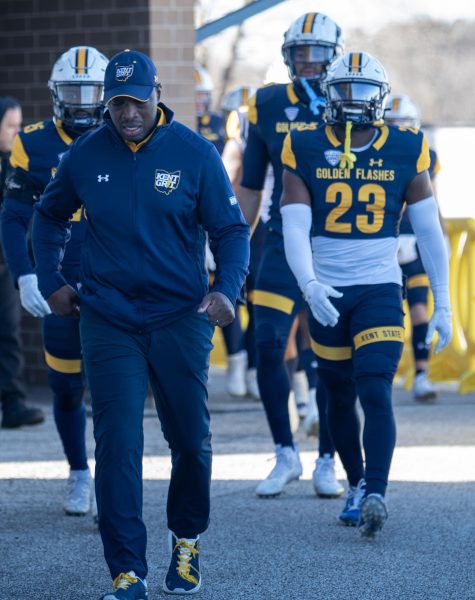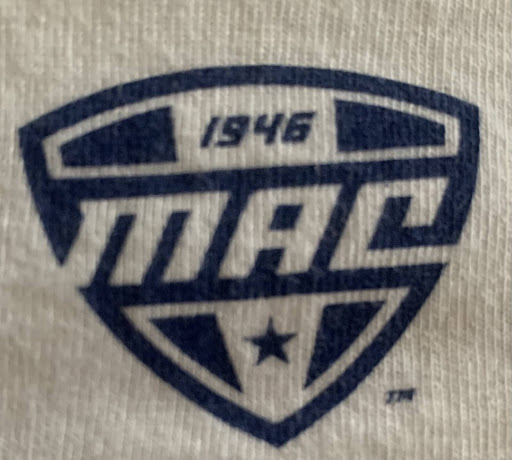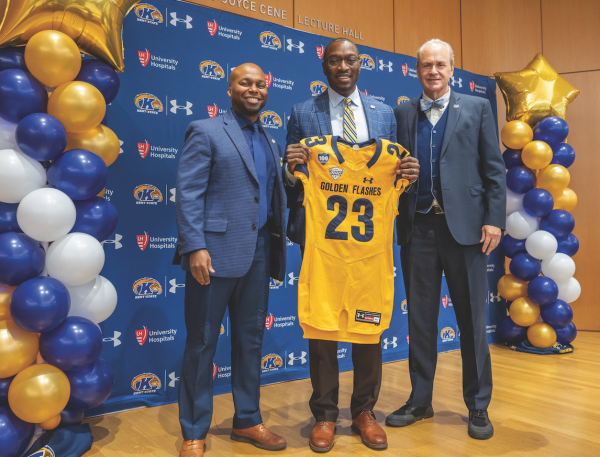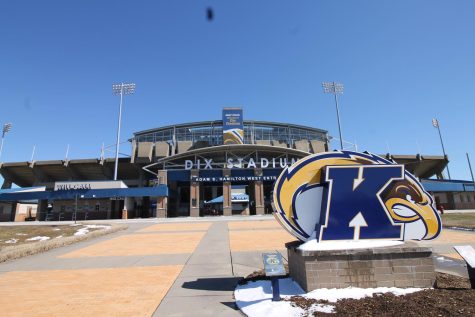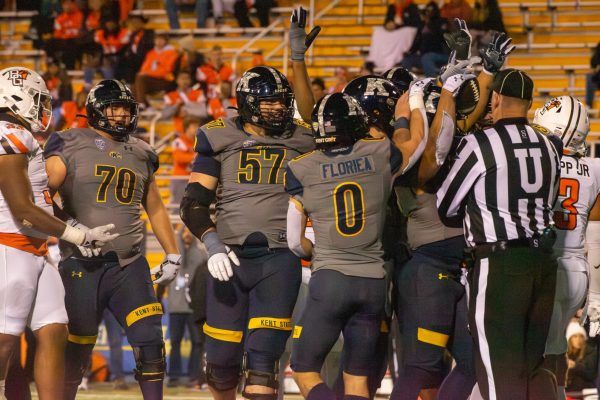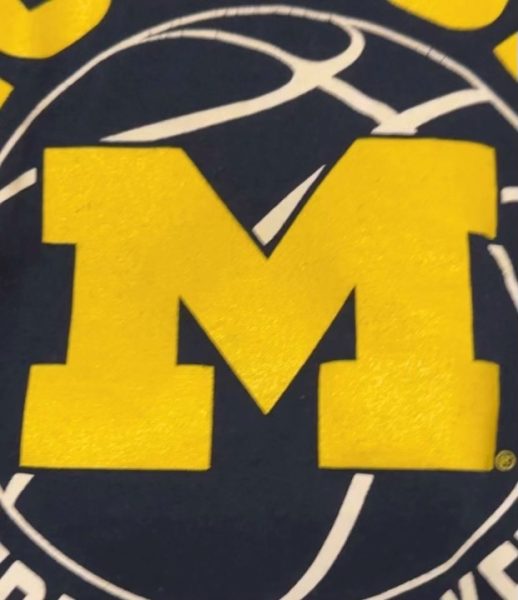Where’s the love for football pioneer Willis?
December 5, 2007
If you watched Sunday’s Browns game against Arizona, you might have noticed a few stickers on the back on the Browns helmet. One was the “21” honoring slain Redskins safety Sean Taylor who was shot and killed last week. The other was a small sticker with a BW on it.
Who is BW you might wonder? It is football pioneer Bill Willis. Don’t know who he is? You’re not the only one.
According to the Pro Football Hall of Fame’s Web site, Willis, along with halfback Marion Montley, signed a professional contract with the Cleveland Browns and broke the color barrier in the All-American Football Conference in 1946, an entire year before Jackie Robinson broke the color barrier in professional baseball.
But whereas almost everyone in America knows and recognizes Robinson as someone who broke down racial barriers and set the table for future generations of desegregation, Willis goes almost unnoticed.
Granted, in 1946 professional football wasn’t nearly as popular as it is today. But the NFL, and the people who cover it, should have done a better job of recognizing what Willis meant to the current scene of professional football.
The entire NFL should have worn a decal honoring Bill Willis on Sunday. I understand the Sean Taylor tragedy took away from some of the attention Willis may have received, but if the Browns could recognize both men on the back of its helmet, then the rest of the NFL should. It is disrespectful to Willis, and it is an ignorant insult on the part of the NFL to not recognize this important face in the development of professional football.
So why didn’t the NFL recognize Willis? He got his own small segment during Sunday’s Browns-Cardinals, but the 1 p.m. game on Time Warner Cable, Seahawks at Eagles, didn’t have any mention of Willis’ passing or his legacy. A search of ESPN only yielded three mentions of Willis’ passing, a small AP story, a longer AP story and only one commentary style story by Jeffri Chadiha. The comment board on that ESPN story had only 28 comments as of yesterday, with most respondents mentioning the article as the only time they ever heard of Bill Willis.
I think this speaks to a bigger issue with the NFL and the people who report it, they fail to recognize anything that happened in the NFL before the first Super Bowl, 1966. While the casual fan may have heard of pre-Super Bowl stars: Red Grange, Jim Thorpe, Sammy Baugh and Otto Graham, they don’t get nearly the coverage or respect that pre-1966 stars of baseball get: Babe Ruth, Ted Williams, Joe Dimaggio and Mickey Mantle.
Like I said before, baseball was the dominant sport in the first half of the 20th century and pro football had many different competing leagues at different times, but there is a sad, unknown history of professional football before the Super Bowl.
For example, did you know the Browns won three NFL championships in the 1950s under Graham and coach Paul Brown.
The two also won four All-American Football Conference championships in the 50s, yet Graham is rarely mentioned among the greatest quarterbacks and Brown rarely gets the proper respect as an early innovator in the NFL.
No disrespect to Vince Lombardi and Bart Starr, but neither compare to what Brown and Graham accomplished in the NFL, but since Lombardi and Starr won the first two Super Bowls, then they are beloved and two of the first names people talk about with NFL history. It is because the NFL fails to recognize its history before 1966. In fact, Otto Grahm came in number two in ESPN’s Who’s Number One list of most underrated athletes.
So despite the fact that Willis broke the NFL’s color barrier a year before Jackie Robinson broke Major League Baseball’s, Willis’ death gets only five paragraphs on NFL.com. MLB does the right thing by retiring Robinson’s jersey number 47 for all 30 teams and naming an award after him. It’s sad that Willis cannot even get a real story on the NFL’s Web site or a decal on the back of every team’s helmet upon his death.
Jeff Russ is a junior news journalism major and sports reporter. Contact him at [email protected].













